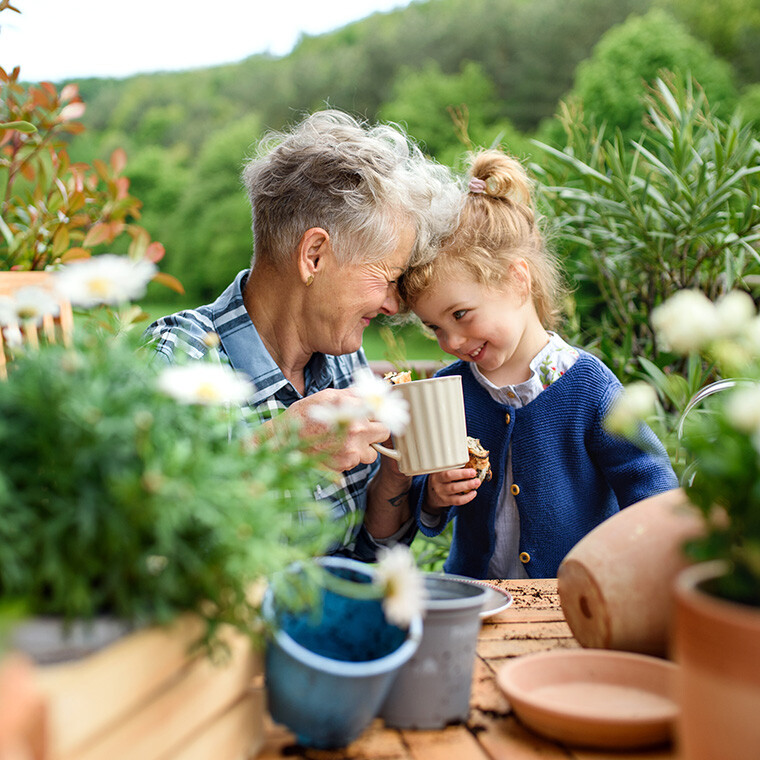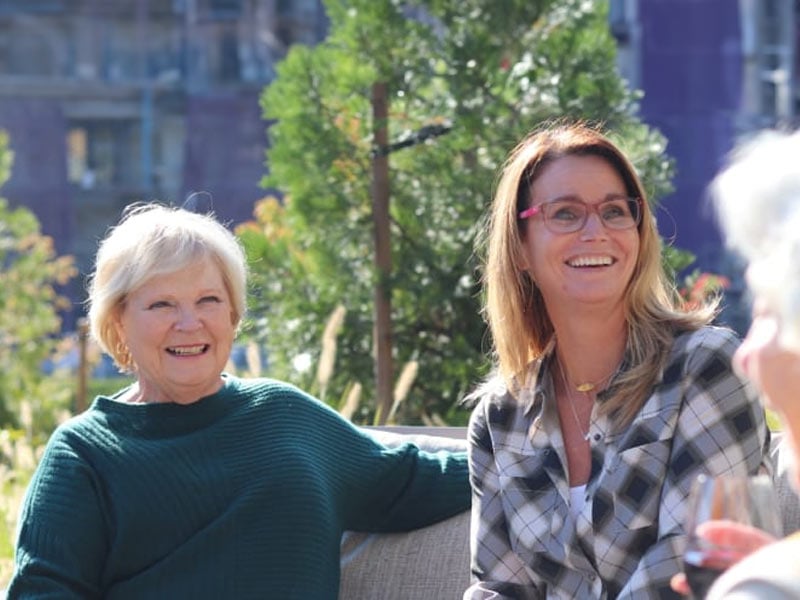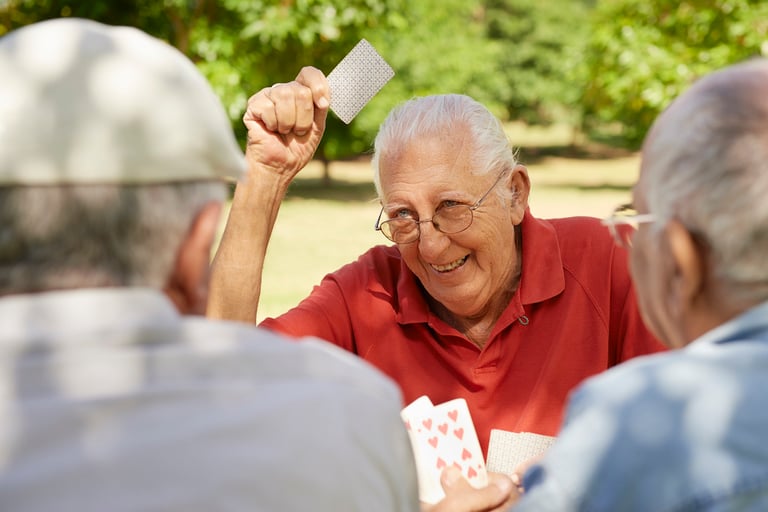According to The Alzheimer's Association, 15 million Americans care for someone with dementia, and more than 5 million Americans are currently living with Alzheimer's. The number of people living with Alzheimer's disease and related dementias will double by 2060, according to a new study from the Centers for Disease Control and Prevention. While statistics paint a difficult picture, taking a more intentional approach to this admittedly challenging situation opens the possibility for a smoother journey.
People living with dementia experience the same range of emotions as at any other time in their lives. Their experience includes periods of difficulty and unrest, but they also experience moments of great joy, moments of pleasure, and feelings of contentment. The cumulative effect can add up to good days that go along with the bad days, as is normal for all of us at any stage of life. It’s important for both residents and their families to have the tools and support to walk this journey together.
Here are a few tips we at The Springs Living regularly practice to help our residents and their families along the way:
- Seek Diagnosis Early: If you suspect the beginnings of dementia, consult your health care professional right away. Other treatable conditions can look a lot like dementia. Interactions between routine medications or an undiagnosed infection may mimic the disease and cause you great concern. Once other conditions have been ruled out and an accurate diagnosis is made, begin to educate yourself. Understanding the general progression of dementia will go a long way to preparing you for the changes that will likely take place in the life of your loved one, and in your own life – especially if you find yourself in the role of caregiver. Knowing what to expect may eliminate some of the stress related to the unknown. Because dementia presents in various ways, it is important to work with your primary care doctor to establish a baseline for what’s happening and make it more likely that you will notice changes as they arise.
- Think Ahead: When you’re ready, talk things over with your family and close friends. When is it time to reconsider those independent strolls in the neighborhood? Who will lend a hand or offer you much-needed respite when the time comes that leaving your loved one home alone is unwise? At what point should you consider moving your loved one to a specialized community? Take a close look at your financial resources and determine what is manageable for your family. Make an appointment for a short tour at a local memory care community. When you take positive action and begin visiting memory care communities before the need is urgent, you will begin to build important relationships with caring professionals who will answer your questions and guide you along the way. Visit more than one community. Taste the food. Observe caregiver interactions. Kindness is everything.
- Practice Self-Care: Caregiver burnout is real. When you feel as though you have no time at all, that is the time to take time for yourself! Ask a family member for an hour or two of support so you can go for a walk or go shopping with a friend. Connect with others who are going through something similar. Be brave and try attending a support group. At the end of the day, your loved one needs you to be the best version of yourself in order to help them remember who they are. There are numerous organizations and resources to help caregivers navigate this unfamiliar territory. Some are listed below.
- Stay Active: This is important for you and your loved one. Enroll him in an exercise class or program, take her for a walk or do something low impact such as swimming. Physical movement is great for mind and body, but the brain needs exercise too. Read a familiar book together, play crossword puzzles and chess if these are familiar activities. This is probably not a time to introduce new or challenging tasks. Choose known activities that allow them to focus on one task. It is important to spark the mind even if it is just watching an old movie together. It allows the brain to stay active and involved in a story. And it is always okay to just have fun together!
- Learn New Communication Strategies: When giving or receiving information, minimize distractions (turn the TV down or off) so your loved one can focus all their mental energy on your message; speak clearly, calmly and with respect; remember non-verbal cues such as smiling and making eye contact, which will facilitate understanding; listen actively and allow them time to respond; do not argue – there is no need to correct misstatements; practice patience! Take a deep breath and listen to the often-repeated story as if it were the first time! For them, it is.
- Remember the Healing Power of Creative Endeavors and Nature: Painting or drawing can provide a creative outlet for people living with dementia. Participation in art-related activities can provide a non-verbal way of communicating and often leads to a glimpse of the past. Worries fade away when people are engaged in the creative process and in instead, there is often joy! Planting a garden or going for a walk in the fresh air, noticing the seasons and taking in the sights, sounds, and smells of our natural world can be grounding and stimulating and helps both caregiver and loved one live in the moment.
- Remember the Past: While short term memory is almost always affected by dementia, the long ago memory (childhood, education, early marriage, military life) tends to remain accessible to the person living with dementia. They will often go back to their happiest times such as when they were a young mother, or a newlywed. As their spouse or loved one, you have shared experiences that are a wonderful potential source of conversation. Allow them to talk about the past and be a listening ear, even if they mistake you for someone from their past. It’s more important that they feel comfortable and enjoy the story-telling rather than getting the details perfect.
For additional resources, we recommend the “Help is Here” series by Marian O. Hodges, MD MPH, and Ann P. Hill JD. Available through Providence, the series is a set of books that are accessible and practical for family caregivers – at home and in community - and professional caregivers alike.
You can also learn more about dementia and the Footsteps® program at The Springs Living by watching the Footsteps® Memory Care video.








.jpg?width=768&height=512&length=768&name=group-of-three-mature-caucasian-women-enjoying-emb-2024-05-07-17-57-17-utc%20(1).jpg)



